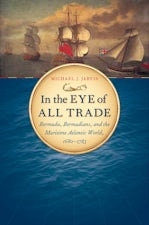The Last Turtlemen of the Caribbean
Waterscapes of Labor, Conservation, and Boundary Making
By Sharika D. Crawford
216 pp., 6.125 x 9.25, 7 halftones, 2 maps, 1 table
-
Paperback ISBN: 978-1-4696-6021-9
Published: October 2020 -
Hardcover ISBN: 978-1-4696-6020-2
Published: October 2020 -
E-book EPUB ISBN: 978-1-4696-6022-6
Published: October 2020 -
E-book PDF ISBN: 979-8-8908-5182-6
Published: October 2020
Flows, Migrations, and Exchanges
Buy this Book
- Paperback $29.95
- Hardcover $99.00
- E-Book $0.00
For Professors:
Free E-Exam Copies
Awards & distinctions
Honorable Mention, 2021 Elsa Goveia Book Prize, Association of Caribbean Historians
Crawford describes the colonial Caribbean as an Atlantic commons where all could compete to control the region’s diverse peoples, lands, and waters and exploit the region’s raw materials. Focusing on the nineteenth and twentieth centuries, Crawford traces and connects the expansion and decline of turtle hunting to matters of race, labor, political and economic change, and the natural environment. Like the turtles they chased, the boundary-flouting laborers exposed the limits of states’ sovereignty for a time but ultimately they lost their livelihoods, having played a significant role in legislation delimiting maritime boundaries. Still, former turtlemen have found their deep knowledge valued today in efforts to protect sea turtles and recover the region’s ecological sustainability.
Open Access ebook sponsored by an award from the National Endowment for the Humanities Fellowships Open Book Program.
About the Author
Sharika D. Crawford is associate professor of history at the United States Naval Academy.
For more information about Sharika D. Crawford, visit
the
Author
Page.
Reviews
"A compelling and insightful study of the human and nonhuman relationships that shaped the important Caribbean industry of turtling, with a focus on the nineteenth and twentieth centuries."—American Historical Review
"Crawford’s book is a timely reminder that the sea has long been at the center of regional debates… expertly woven narrative of a fishery in decline could be superimposed upon any community of fishers in the Caribbean today."—H-LatAm
"A valuable maritime perspective of the Caribbean past."—World History Connected
"A great resource for teaching . . . [will appeal] to historians of all sorts; whether one is interested in transnational governance, labor and empire, or environmental change and conservation, there is a chapter for you in this book.”—Low Countries Journal of Social and Economic History
“Well written and richly documented . . . [and] supported by impeccable writing and thorough historiographical research and analysis.”—New West Indian Guide
“This may be the first book to consider marine animals—mainly the green and hawksbill turtles—as an organizing principle to examine society and empire. Bringing the humble turtle into conversation with state power and control, Sharika Crawford takes you on the ships and into the hunt to investigate the ideas, people, and commodities that so intimately connected a diaspora of animal-seekers and their communities. These men and these turtles reshape how we think about the slippery interfaces between humans and the sea, societies and animals, the Caribbean and the world.”—Emily Wakild, Boise State University




